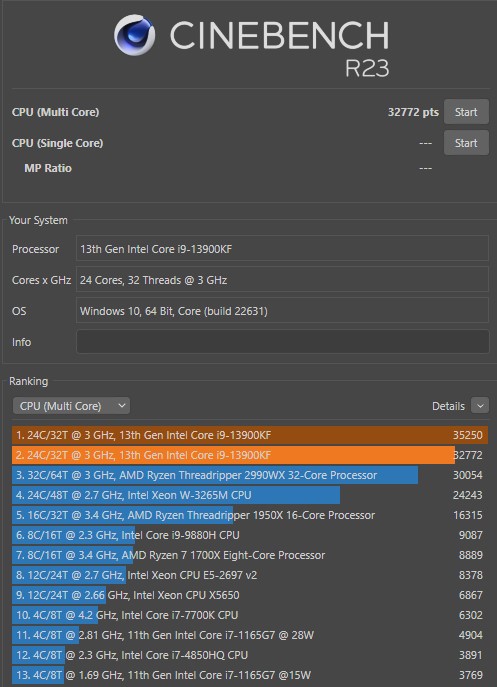High-end Intel processors visibly cause instabilities and unwanted crashes for some players. Asus is the first motherboard manufacturer to release a BIOS update to correct the problem, at the cost of performance.
Intel is currently in turmoil among gamers as its most high-end processors, the 13th and 14th generation Core i9s, cause instability in certain games, causing crashes and other untimely freezes.
If the manufacturer recognized the existence of the problem this month and has visibly begun its investigation, we are seeing the first measures this week. Asus is the first to release an update for its motherboards aimed at solving the problem.
Asus resets your Intel processor to default
In recent weeks, all eyes have been on motherboard manufacturers who have quickly been singled out for their supposedly overly “optimized” bios. Indeed, MSI and Asus have the unfortunate tendency to increase the consumption limits of these processors to increase performance, at the cost of high temperature and a certain stability.
I personally had this problem with an i5 13600k which, on a new machine with default BIOS, very quickly reached 100 degrees in the Cinebench benchmark tool without the slightest overclocking. But things have improved recently with a previous BIOS update that aimed to improve the stability of Intel chips.
With this new update for its most high-end motherboards (ROG Maximus and Strix), Asus this time offers a basic profile faithful to Intel specifications:
The update introduces the Intel Baseline Profile option, which allows users to revert to Intel factory settings for basic functionality, reduce power limits, and improve stability in certain games.
A more stable processor… but less efficient?
The first user tests on reddit or the overclock.net forum confirm that the option does indeed reduce the performance of your processor, with differences observed between 10 and 13% in synthetic benchmark on the i9 14900K (and KS, the hormone-boosted version).

We tested this new BIOS on an Intel Core i9 13900k, also affected by stability issues for several months. We also observed a clear drop in benchmarking (more measured than for the 14th generation), which however did not impact in-game on titles like Cyberpunk 2077 or Spider-Man Remastered, both of which are quite heavy in CPU resources.
Further tests will be necessary to assess the impact of this Intel basic profile, which you can activate from the AI Tweaker menu once the bios update has been carried out from the Asus site. If you have not had any in-game issues with your latest generation Core i9 processor so far, the update remains optional. As someone else would say: if it ain’t broken, don’t fix it.
